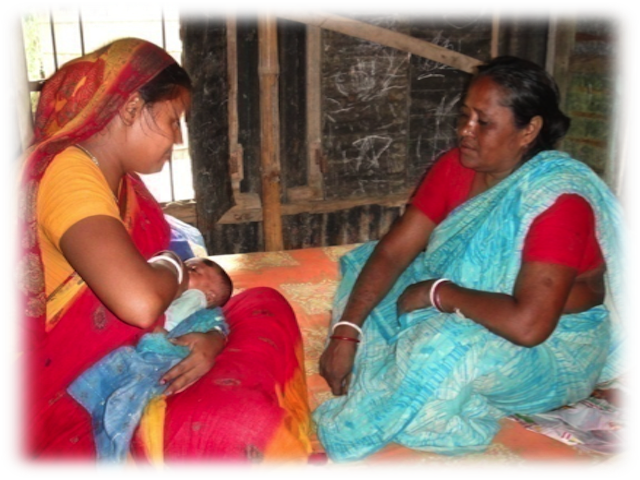This post appeared originally on the Nourishing Millions site.
By Ellen Piwoz
This year’s World Breastfeeding Week 2016 theme—Breastfeeding: A key to Sustainable Development—reminds me of a comment Keith Hansen, Vice President of Human Development at the World Bank Group, made at an event earlier this year. While discussing a new nutrition investment framework, he noted that nutrition is both a “maker and a marker of development.” As a lifelong nutritionist, I’ve been thrilled to see economists and others respond to evidence highlighting the foundational role nutrition plays in economic development.
Looking specifically at breastfeeding: There are robust epidemiologic relationships between infant and young child feeding practices and cognition, educational attainment, and economic productivity. The well-being of children is intricately tied to the health of their mothers and families. This gets at the heart of the United Nations Sustainable Development Goals (SDGs). If we fail to address how malnutrition and poor breastfeeding practices prevent individuals from reaching their full potential, we will never achieve these ambitious global goals.
We know a lot about the benefits of breastfeeding and how it helps children to survive and thrive:
- Delaying breastfeeding by 2 to 23 hours after birth increases a newborn’s risk of dying in the first 28 days by 40 percent. (NEOVITA Study Group)
- Improving breastfeeding practices could save over 820,000 lives a year, 87 percent of them infants under 6 months of age. (The Lancet Breastfeeding Series)
- Globally, estimated costs of lower cognitive ability associated with not breastfeeding amount to about $300 billion annually. (The Lancet)
- In the U.S. alone, labor economists estimate that improved breastfeeding could equate to a $20,000 per child increase in the present value of lifetime earnings, or $40 billion annually. (Hafstead and Lutter)
Yet, while the case for breastfeeding continues to grow, we are not seeing significant improvement in breastfeeding practices. A new analysis by UNICEF shows that globally, 77 million newborns are not breastfed within an hour of birth.
As we think about how we can strengthen progress, there are three areas where I see opportunities:
- Invest in Data: The 2016 Global Nutrition Report (GNR) noted that the world is not on track to meet the World Health Assembly target of at least 50 percent exclusive breastfeeding by 2025. Another number in the report identifies one of the hindrances—of the 184 countries that the GNR assessed, 110 did not have the data needed to inform analysis on exclusive breastfeeding. That is approximately 60 percent of the countries they looked at. I always say that what gets measured is what gets changed. We need more data collection and analysis like UNICEF’s From the First Hour of Life report. It helps us track our progress and tell the story of why we need to increase our efforts.
- Enforce the Code: It has been 35 years since the International Code of Marketing of Breastmilk Substitutes was created to protect breastfeeding and ensure that commercial interests did not interfere with health and feeding decisions. A paper published earlier this year estimated that in 2014, global formula companies spent more than $4.48 billion on marketing—which is comparable to the entire budget of the World Health Organization. Clearly, there is work to be done to improve the effectiveness of the Code. Since its adoption, only 36 percent of countries have implemented all or many of the provisions of the Code. And even amongst those that adopted elements of the Code into national policy, monitoring and enforcement are often lacking. The ARCH project found that in Cambodia, which has a national iteration of the Code, 86 percent of mothers surveyed reported seeing promotions for breastmilk substitutes. Strengthening the Code can help to strengthen the protective enabling environment for women and families. An important step was made earlier this year at the World Health Assembly when member states adopted guidance on Ending Promotion of Foods for Infants and Young Children. This clarifying guidance is now a tool countries can use to help recognize and regulate inappropriate marketing, including follow-up milks and growing up formulas.
- Recognize that this isn’t “just” a woman’s issue. One of my favorite quotes from The Lancet Breastfeeding Series was actually on the cover: “Success in breastfeeding is not the sole responsibility of a woman—the promotion of breastfeeding is a collective societal responsibility.” This is a crucial distinction. Women are 2.5 times more likely to breastfeed when it is protected, promoted, and supported. This takes many forms—from maternity leave or other breastfeeding-friendly work policies, to normalizing breastfeeding in public. Mothers, families, health care providers, policymakers, and other influencers need accurate information to ensure that breastfeeding mothers and their children are empowered and supported at home, at work and in the community.
Improving breastfeeding policies and practices can be our next great global nutrition success—and from it, we create the foundation for even greater progress across health and development. We all have a role to play in making this happen, so let’s celebrate World Breastfeeding Week this year by getting started.
Ellen Piwoz is one of the authors of IFPRI’s Nourishing Millions book project, which examines nutritional success stories around the world. She is Senior Program Officer and Initiative Lead in the Nutrition Division of the Bill & Melinda Gates Foundation. Her work focuses on data, analytics, and evidence to improve nutrition for women, infants, young children, and girls globally. Follow her on Twitter @EllenPiwoz







